Shows
 Forum for PhilosophyThe Modern MindAdrian Alsmith, Tim Lewens, and Lauren Slater trace the development of our modern ideas about the mind2021-06-1500 min
Forum for PhilosophyThe Modern MindAdrian Alsmith, Tim Lewens, and Lauren Slater trace the development of our modern ideas about the mind2021-06-1500 min Forum for PhilosophyThe Modern MindAdrian Alsmith, Tim Lewens, and Lauren Slater trace the development of our modern ideas about the mind2021-06-1500 min
Forum for PhilosophyThe Modern MindAdrian Alsmith, Tim Lewens, and Lauren Slater trace the development of our modern ideas about the mind2021-06-1500 min Audio – Forum for PhilosophyThe Modern MindAdrian Alsmith, Tim Lewens, and Lauren Slater trace the development of our modern ideas about the mind2021-06-1500 min
Audio – Forum for PhilosophyThe Modern MindAdrian Alsmith, Tim Lewens, and Lauren Slater trace the development of our modern ideas about the mind2021-06-1500 min Lars og PålEpisode 89 Forskning, aktivisme og vitenskapsfilosofisk debattI denne episoden snakker vi om hvordan vi diskuterer vitenskap og forskning, og forskere som uttaler seg i offentligheten, og relaterte tema. Det må selvsagt være mulig, lov og oppfordret til å kritisere vitenskap, men det betyr ikke at all vitenskapskritikk er god. Så når folk sier at forskning er farget av politiske hensyn, økonomiske interesser, eller kanskje til og med av rasistisk tankegods, hvordan skal man forholde seg til slike anklager? Det er selvsagt noe i endel slike kritikker, men det er ikke dermed gitt hva vi bør gjøre av forandringer. Er det noe probl...2021-02-061h 41
Lars og PålEpisode 89 Forskning, aktivisme og vitenskapsfilosofisk debattI denne episoden snakker vi om hvordan vi diskuterer vitenskap og forskning, og forskere som uttaler seg i offentligheten, og relaterte tema. Det må selvsagt være mulig, lov og oppfordret til å kritisere vitenskap, men det betyr ikke at all vitenskapskritikk er god. Så når folk sier at forskning er farget av politiske hensyn, økonomiske interesser, eller kanskje til og med av rasistisk tankegods, hvordan skal man forholde seg til slike anklager? Det er selvsagt noe i endel slike kritikker, men det er ikke dermed gitt hva vi bør gjøre av forandringer. Er det noe probl...2021-02-061h 41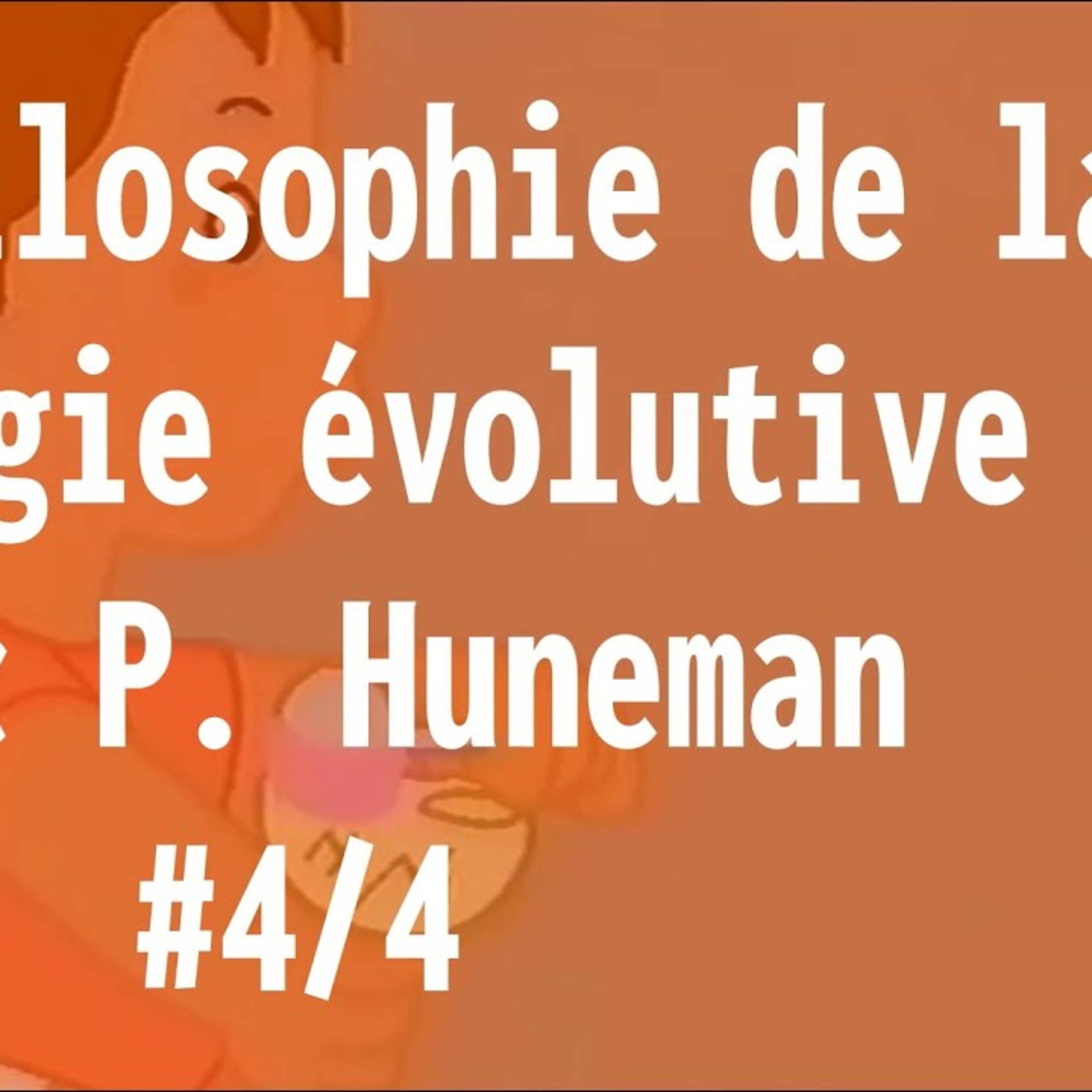 GoH - Audio101 Philosophie de la biologie évolutive - avec P. Huneman 4/4Quatrième et dernier épisode d’un cycle de quatre vidéos sur l’épistémologie, et plus précisément sur la philosophie de la biologie évolutive. Le contenu vous est offert par Philippe Huneman, et schématisé et monté par votre serviteur.
Audio de la vidéo : https://youtu.be/eHlaPLXHbNo
Recevoir la newsletter : http://gameofhearth.fr/index.php/newsletter/
Soutenir l'activité de la chaîne sur Utip : https://utip.io/gameofhearth
Tous les liens : https://linktr.ee/gameofhearth
Au menu de la série :
Partie 1 : É...2020-11-1018 min
GoH - Audio101 Philosophie de la biologie évolutive - avec P. Huneman 4/4Quatrième et dernier épisode d’un cycle de quatre vidéos sur l’épistémologie, et plus précisément sur la philosophie de la biologie évolutive. Le contenu vous est offert par Philippe Huneman, et schématisé et monté par votre serviteur.
Audio de la vidéo : https://youtu.be/eHlaPLXHbNo
Recevoir la newsletter : http://gameofhearth.fr/index.php/newsletter/
Soutenir l'activité de la chaîne sur Utip : https://utip.io/gameofhearth
Tous les liens : https://linktr.ee/gameofhearth
Au menu de la série :
Partie 1 : É...2020-11-1018 min Audio – Forum for PhilosophyFrom the vaults: DarwinTim Lewens/ David Papineau Listen to the podcast here Darwin was primarily a biologist rather than a philosopher, but his work has had huge significance for how philosophers think about many of philosophy’s central problems. For example, to what extent is Darwinian thinking important for developing a satisfactory account of human nature? Tim … Continued2020-04-2200 min
Audio – Forum for PhilosophyFrom the vaults: DarwinTim Lewens/ David Papineau Listen to the podcast here Darwin was primarily a biologist rather than a philosopher, but his work has had huge significance for how philosophers think about many of philosophy’s central problems. For example, to what extent is Darwinian thinking important for developing a satisfactory account of human nature? Tim … Continued2020-04-2200 min Forum for PhilosophyFrom the vaults: DarwinTim Lewens/ David Papineau Listen to the podcast here Darwin was primarily a biologist rather than a philosopher, but his work has had huge significance for how philosophers think about many of philosophy’s central problems. For example, to what extent is Darwinian thinking important for developing a satisfactory account of human nature? Tim … Continued2020-04-2200 min
Forum for PhilosophyFrom the vaults: DarwinTim Lewens/ David Papineau Listen to the podcast here Darwin was primarily a biologist rather than a philosopher, but his work has had huge significance for how philosophers think about many of philosophy’s central problems. For example, to what extent is Darwinian thinking important for developing a satisfactory account of human nature? Tim … Continued2020-04-2200 min Forum for PhilosophyFrom the vaults: DarwinTim Lewens/ David Papineau Listen to the podcast here Darwin was primarily a biologist rather than a philosopher, but his work has had huge significance for how philosophers think about many of philosophy’s central problems. For example, to what extent is Darwinian thinking important for developing a satisfactory account of human nature? Tim … Continued2020-04-2200 min
Forum for PhilosophyFrom the vaults: DarwinTim Lewens/ David Papineau Listen to the podcast here Darwin was primarily a biologist rather than a philosopher, but his work has had huge significance for how philosophers think about many of philosophy’s central problems. For example, to what extent is Darwinian thinking important for developing a satisfactory account of human nature? Tim … Continued2020-04-2200 min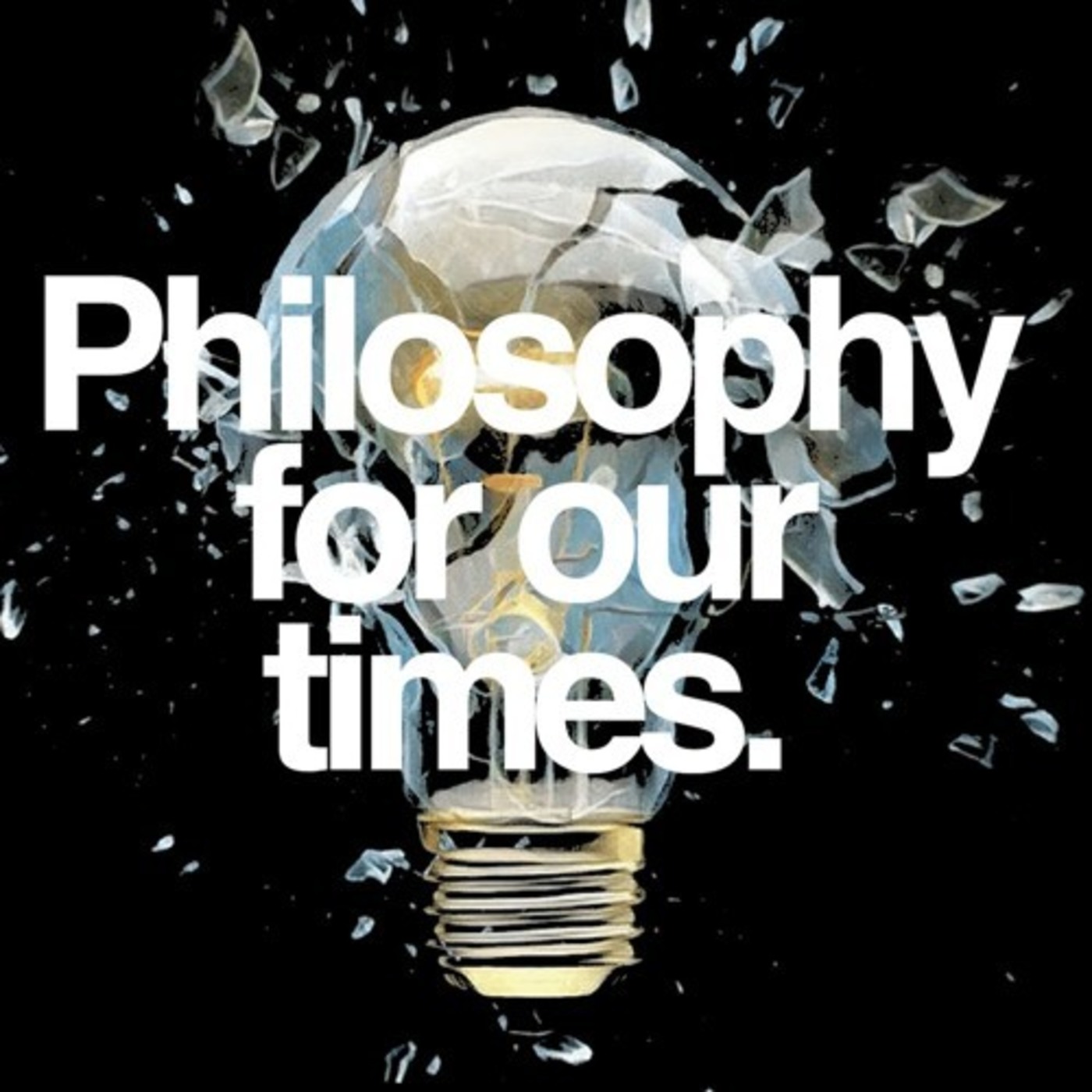 Philosophy For Our TimesEvolution After Darwin | Massimo Pigliucci, Zanna Clay, Tim LewensLooking for a link we mentioned? It's here: https://linktr.ee/philosophyforourtimesThe brutal mechanism of natural selection gave rise to all life on our planet. Or so the Darwinian story goes. But from mice to great whales, it now appears that animals inherit socially acquired characteristics. Is the theory of natural selection a Victorian relic, about to be replaced by a new science of cultural evolution? In this episode of Philosophy for our Times, philosopher of science Massimo Pigliucci, psychologist and primatologist Zanna Clay and professor of philosophy Tim Lewens ask if there is more to e...2019-09-0341 min
Philosophy For Our TimesEvolution After Darwin | Massimo Pigliucci, Zanna Clay, Tim LewensLooking for a link we mentioned? It's here: https://linktr.ee/philosophyforourtimesThe brutal mechanism of natural selection gave rise to all life on our planet. Or so the Darwinian story goes. But from mice to great whales, it now appears that animals inherit socially acquired characteristics. Is the theory of natural selection a Victorian relic, about to be replaced by a new science of cultural evolution? In this episode of Philosophy for our Times, philosopher of science Massimo Pigliucci, psychologist and primatologist Zanna Clay and professor of philosophy Tim Lewens ask if there is more to e...2019-09-0341 min Philosophy For Our TimesEvolution After Darwin | Massimo Pigliucci, Zanna Clay, Tim LewensLooking for a link we mentioned? It's here: https://linktr.ee/philosophyforourtimesThe brutal mechanism of natural selection gave rise to all life on our planet. Or so the Darwinian story goes. But from mice to great whales, it now appears that animals inherit socially acquired characteristics. Is the theory of natural selection a Victorian relic, about to be replaced by a new science of cultural evolution? In this episode of Philosophy for our Times, philosopher of science Massimo Pigliucci, psychologist and primatologist Zanna Clay and professor of philosophy Tim Lewens ask if there is more to e...2019-09-0341 min
Philosophy For Our TimesEvolution After Darwin | Massimo Pigliucci, Zanna Clay, Tim LewensLooking for a link we mentioned? It's here: https://linktr.ee/philosophyforourtimesThe brutal mechanism of natural selection gave rise to all life on our planet. Or so the Darwinian story goes. But from mice to great whales, it now appears that animals inherit socially acquired characteristics. Is the theory of natural selection a Victorian relic, about to be replaced by a new science of cultural evolution? In this episode of Philosophy for our Times, philosopher of science Massimo Pigliucci, psychologist and primatologist Zanna Clay and professor of philosophy Tim Lewens ask if there is more to e...2019-09-0341 min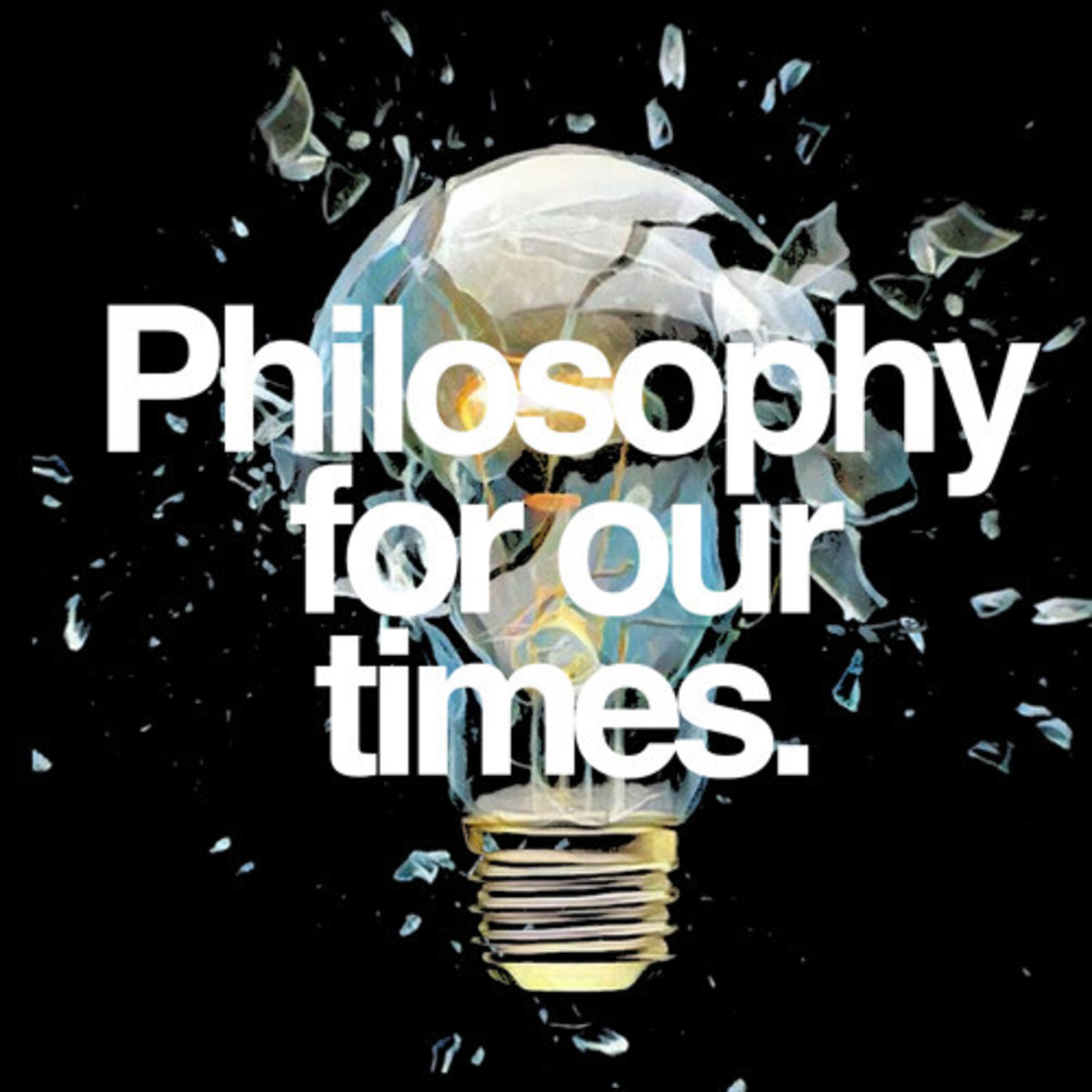 Philosophy For Our TimesTruth, Science and the Universe | Peter Atkins, Sophia Roosth, Tim LewensLooking for a link we mentioned? It's here: https://linktr.ee/philosophyforourtimesWhere once we made sense of the world using the idea of God, most of us now believe in a more scientific story, of an unfolding universe and evolution. Yet scientists increasingly see their theories as useful models rather than ultimate accounts. Is science then just another human description limited by language, culture and circumstance? In this episode of Philosophy for our Times, author of Conjuring the Universe Peter Atkins, Harvard historian of science Sophie Roosth and Cambridge philosopher and author of the Meaning of S...2019-02-0537 min
Philosophy For Our TimesTruth, Science and the Universe | Peter Atkins, Sophia Roosth, Tim LewensLooking for a link we mentioned? It's here: https://linktr.ee/philosophyforourtimesWhere once we made sense of the world using the idea of God, most of us now believe in a more scientific story, of an unfolding universe and evolution. Yet scientists increasingly see their theories as useful models rather than ultimate accounts. Is science then just another human description limited by language, culture and circumstance? In this episode of Philosophy for our Times, author of Conjuring the Universe Peter Atkins, Harvard historian of science Sophie Roosth and Cambridge philosopher and author of the Meaning of S...2019-02-0537 min Philosophy For Our TimesTruth, Science and the Universe | Peter Atkins, Sophia Roosth, Tim LewensLooking for a link we mentioned? It's here: https://linktr.ee/philosophyforourtimesWhere once we made sense of the world using the idea of God, most of us now believe in a more scientific story, of an unfolding universe and evolution. Yet scientists increasingly see their theories as useful models rather than ultimate accounts. Is science then just another human description limited by language, culture and circumstance? In this episode of Philosophy for our Times, author of Conjuring the Universe Peter Atkins, Harvard historian of science Sophie Roosth and Cambridge philosopher and author of the Meaning of S...2019-02-0537 min
Philosophy For Our TimesTruth, Science and the Universe | Peter Atkins, Sophia Roosth, Tim LewensLooking for a link we mentioned? It's here: https://linktr.ee/philosophyforourtimesWhere once we made sense of the world using the idea of God, most of us now believe in a more scientific story, of an unfolding universe and evolution. Yet scientists increasingly see their theories as useful models rather than ultimate accounts. Is science then just another human description limited by language, culture and circumstance? In this episode of Philosophy for our Times, author of Conjuring the Universe Peter Atkins, Harvard historian of science Sophie Roosth and Cambridge philosopher and author of the Meaning of S...2019-02-0537 min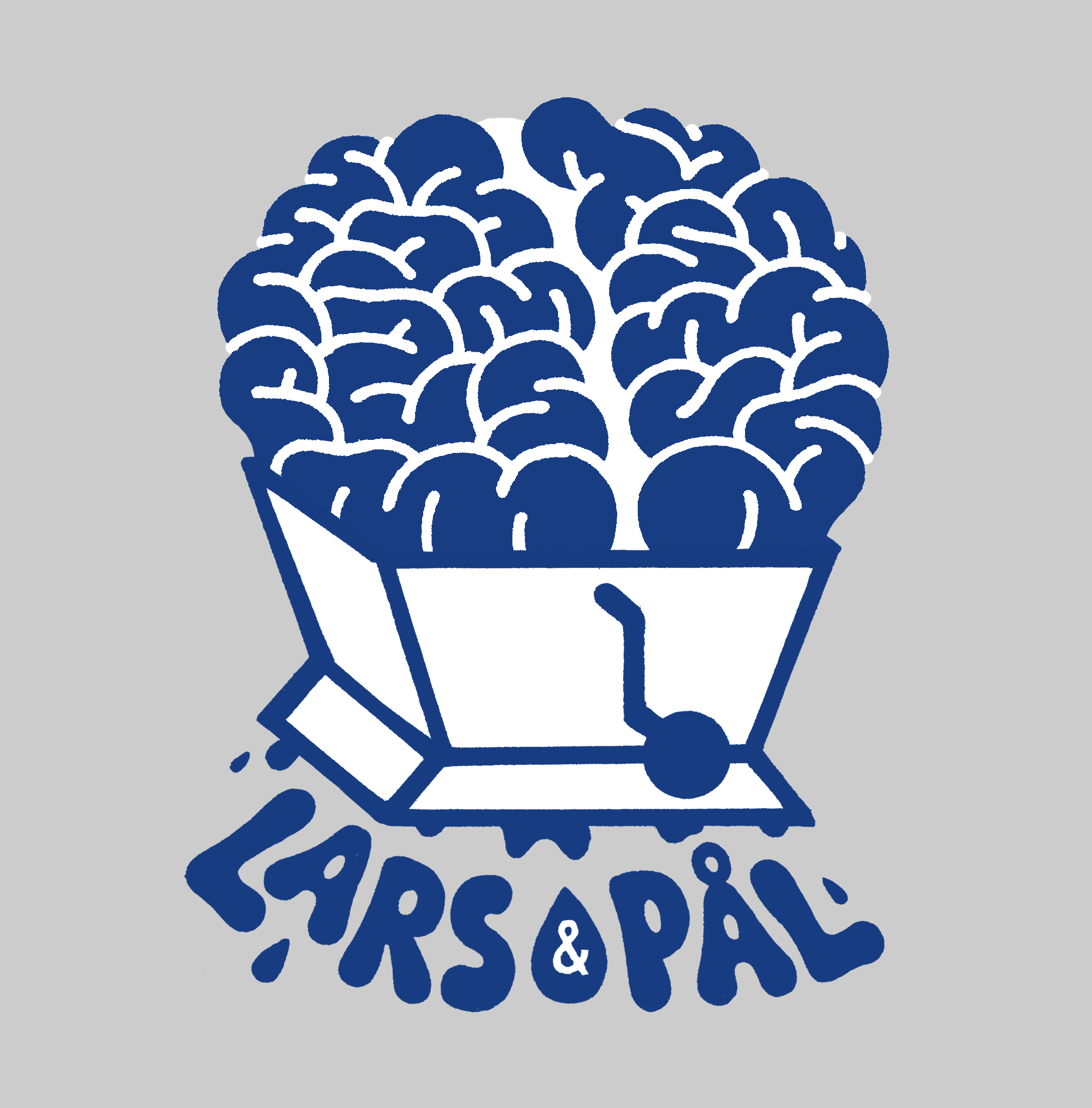 Lars og PålEpisode 50 Darwin får en ide«How stupid not to have thought about that!» skal angivelig Darwins venn Thomas Huxley (1825-1895) ha sagt når han hadde lest On the Origin of the Species fra 1859. Hvordan kom Charles Darwin (1809-1882) egentlig frem til denne ideen, og hvorfor hadde ingen tenkt på det før? Det som i alle fall er sikkert er at han selv brukte lang tid på å endre syn, og at det ikke skjedde i et såkalt aha-øyeblikk hvor alt stod klart for han. «I feel not a shade of surprise at your entirely rejecting my views: my surpris...2018-12-071h 13
Lars og PålEpisode 50 Darwin får en ide«How stupid not to have thought about that!» skal angivelig Darwins venn Thomas Huxley (1825-1895) ha sagt når han hadde lest On the Origin of the Species fra 1859. Hvordan kom Charles Darwin (1809-1882) egentlig frem til denne ideen, og hvorfor hadde ingen tenkt på det før? Det som i alle fall er sikkert er at han selv brukte lang tid på å endre syn, og at det ikke skjedde i et såkalt aha-øyeblikk hvor alt stod klart for han. «I feel not a shade of surprise at your entirely rejecting my views: my surpris...2018-12-071h 13 AnthropologyThe concept of culture in cultural evolutionThe Keynote speech by Tim Lewens (Professor of Philosophy of Science, Cambridge) for the Cultural Evolution Workshop held at the Pitt Rivers Museum, Oxford, on 28 February 20172018-03-2744 min
AnthropologyThe concept of culture in cultural evolutionThe Keynote speech by Tim Lewens (Professor of Philosophy of Science, Cambridge) for the Cultural Evolution Workshop held at the Pitt Rivers Museum, Oxford, on 28 February 20172018-03-2744 min AnthropologyThe concept of culture in cultural evolutionIn his keynote speech for the Cultural Evolution Workshop (held in the Pitt Rivers Museum on 28 February 2017), Prof. Tim Lewens of Cambridge examines the concept of culture in cultural evolution.2017-07-2644 min
AnthropologyThe concept of culture in cultural evolutionIn his keynote speech for the Cultural Evolution Workshop (held in the Pitt Rivers Museum on 28 February 2017), Prof. Tim Lewens of Cambridge examines the concept of culture in cultural evolution.2017-07-2644 min Spring 2016 | Public lectures and events | Audio and pdfDarwinism and the Social SciencesContributor(s): Professor Tim Lewens, Dr Alex Mesoudi, Professor Christina Toren | A growing number of researchers are applying Darwinian ideas to explain aspects of human society, but this work has long been controversial. Is a Darwinian theory of culture possible? If so, what should such a theory look like? In what ways should it differ from a theory of biological evolution? Does the “meme” concept have any value? How should we think about cultural inheritance, if not in terms of memes? In this interdisciplinary discussion, philosopher Tim Lewens, social anthropologist Christina Toren and cultural evolution theorist Alex Mesoudi debate these and...2016-02-291h 26
Spring 2016 | Public lectures and events | Audio and pdfDarwinism and the Social SciencesContributor(s): Professor Tim Lewens, Dr Alex Mesoudi, Professor Christina Toren | A growing number of researchers are applying Darwinian ideas to explain aspects of human society, but this work has long been controversial. Is a Darwinian theory of culture possible? If so, what should such a theory look like? In what ways should it differ from a theory of biological evolution? Does the “meme” concept have any value? How should we think about cultural inheritance, if not in terms of memes? In this interdisciplinary discussion, philosopher Tim Lewens, social anthropologist Christina Toren and cultural evolution theorist Alex Mesoudi debate these and...2016-02-291h 26 Spring 2016 | Public lectures and events | VideoDarwinism and the Social SciencesContributor(s): Professor Tim Lewens, Dr Alex Mesoudi, Professor Christina Toren | A growing number of researchers are applying Darwinian ideas to explain aspects of human society, but this work has long been controversial. Is a Darwinian theory of culture possible? If so, what should such a theory look like? In what ways should it differ from a theory of biological evolution? Does the “meme” concept have any value? How should we think about cultural inheritance, if not in terms of memes? In this interdisciplinary discussion, philosopher Tim Lewens, social anthropologist Christina Toren and cultural evolution theorist Alex Mesoudi debate these and...2016-02-291h 26
Spring 2016 | Public lectures and events | VideoDarwinism and the Social SciencesContributor(s): Professor Tim Lewens, Dr Alex Mesoudi, Professor Christina Toren | A growing number of researchers are applying Darwinian ideas to explain aspects of human society, but this work has long been controversial. Is a Darwinian theory of culture possible? If so, what should such a theory look like? In what ways should it differ from a theory of biological evolution? Does the “meme” concept have any value? How should we think about cultural inheritance, if not in terms of memes? In this interdisciplinary discussion, philosopher Tim Lewens, social anthropologist Christina Toren and cultural evolution theorist Alex Mesoudi debate these and...2016-02-291h 26 Philosophy BitesTim Lewens on Selling Organs (originally on Bioethics Bites)Can it ever be acceptable to sell human body parts. Tim Lewens discusses this increasingly pertinent moral question with Nigel Warburton. This episode of the Philosophy Bites podcast was originally released on Bioethics Bites and made in association with the Uehiro Centre with a grant from the Wellcome Trust.2012-06-2218 min
Philosophy BitesTim Lewens on Selling Organs (originally on Bioethics Bites)Can it ever be acceptable to sell human body parts. Tim Lewens discusses this increasingly pertinent moral question with Nigel Warburton. This episode of the Philosophy Bites podcast was originally released on Bioethics Bites and made in association with the Uehiro Centre with a grant from the Wellcome Trust.2012-06-2218 min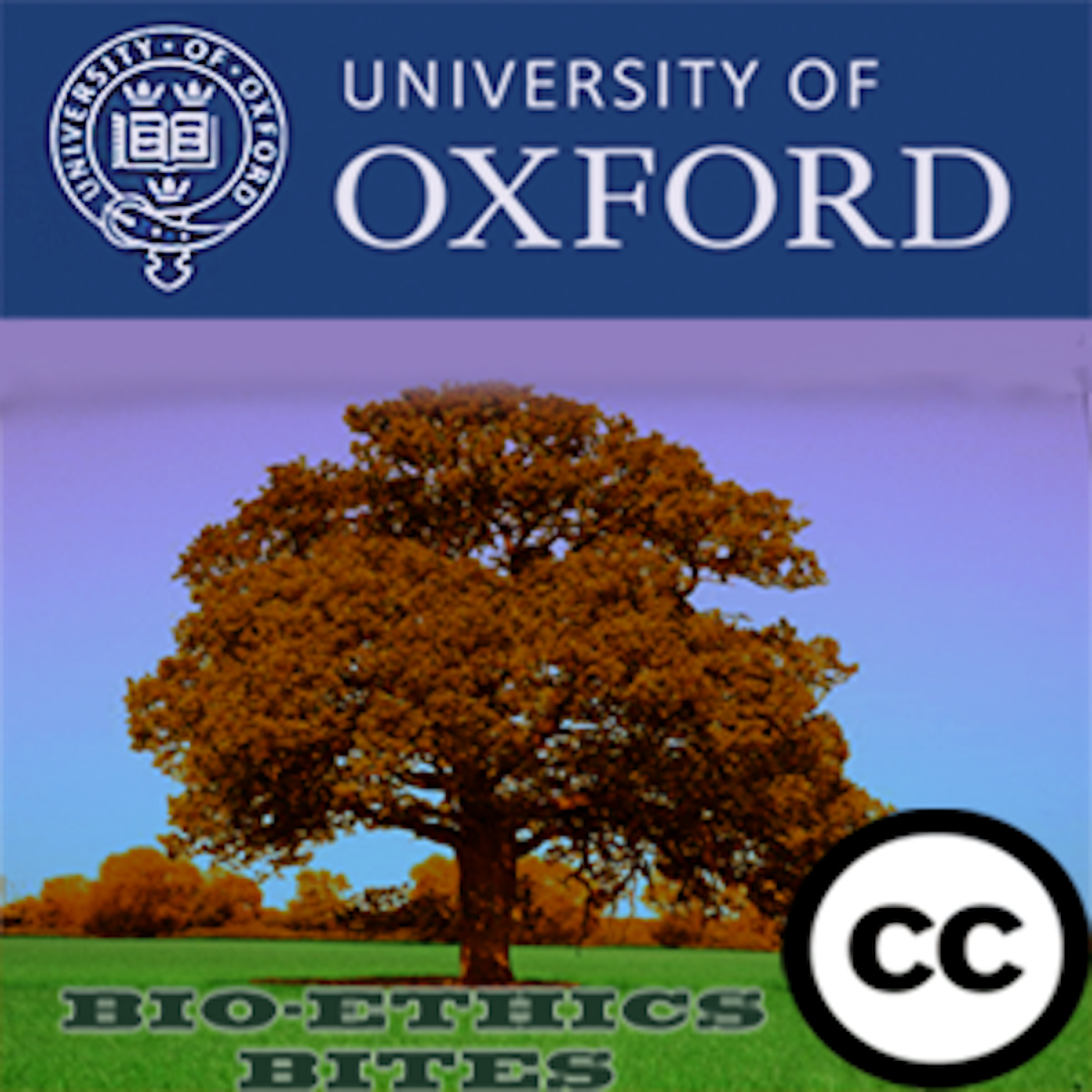 Bio-Ethics BitesSelling OrgansEveryday people die in hospitals because there aren't enough organs available for transplant. In most countries of the world - though not all - it is illegal to sell organs. Governments insist that the motive for donating organs has to be altruistic, it can't be financial reward. The idea of being able to sell body parts makes many people uneasy. But is it time for a policy change: should we be permitted to flog one of our kidneys on ebay, say, for $10,000. If not, why not? Tim Lewens is a Cambridge philosopher and a member of the Nuffield Council on...2011-11-0118 min
Bio-Ethics BitesSelling OrgansEveryday people die in hospitals because there aren't enough organs available for transplant. In most countries of the world - though not all - it is illegal to sell organs. Governments insist that the motive for donating organs has to be altruistic, it can't be financial reward. The idea of being able to sell body parts makes many people uneasy. But is it time for a policy change: should we be permitted to flog one of our kidneys on ebay, say, for $10,000. If not, why not? Tim Lewens is a Cambridge philosopher and a member of the Nuffield Council on...2011-11-0118 min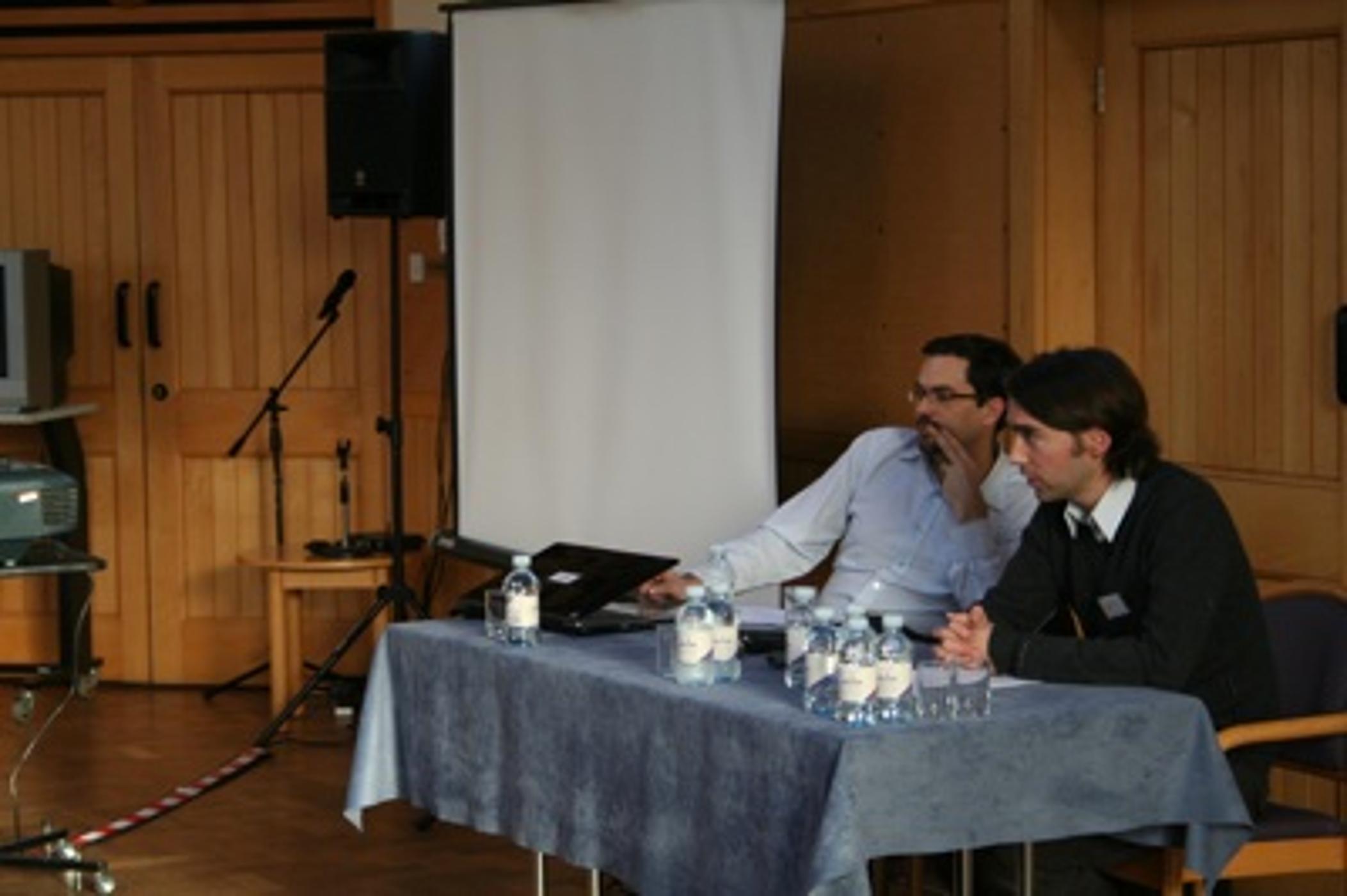 Aspects of Philosophy at CambridgeTim Lewens - A Surfeit of Naturalism2010-12-1335 min
Aspects of Philosophy at CambridgeTim Lewens - A Surfeit of Naturalism2010-12-1335 min Summer 2009 | Public lectures and events | VideoDarwin and PhilosophyContributor(s): Dr Tim Lewens, Professor David Papineau | The speakers will discuss the importance of Darwin's thinking to central philosophical issues, including creationism, the human mind, and the nature of morality.2009-06-251h 28
Summer 2009 | Public lectures and events | VideoDarwin and PhilosophyContributor(s): Dr Tim Lewens, Professor David Papineau | The speakers will discuss the importance of Darwin's thinking to central philosophical issues, including creationism, the human mind, and the nature of morality.2009-06-251h 28 Summer 2009 | Public lectures and events | Audio and pdfDarwin and PhilosophyContributor(s): Dr Tim Lewens, Professor David Papineau | The speakers will discuss the importance of Darwin's thinking to central philosophical issues, including creationism, the human mind, and the nature of morality.2009-06-251h 28
Summer 2009 | Public lectures and events | Audio and pdfDarwin and PhilosophyContributor(s): Dr Tim Lewens, Professor David Papineau | The speakers will discuss the importance of Darwin's thinking to central philosophical issues, including creationism, the human mind, and the nature of morality.2009-06-251h 28 Summer 2009 | Public lectures and events | VideoDarwin and PhilosophyContributor(s): Dr Tim Lewens, Professor David Papineau | The speakers will discuss the importance of Darwin's thinking to central philosophical issues, including creationism, the human mind, and the nature of morality.2009-06-251h 28
Summer 2009 | Public lectures and events | VideoDarwin and PhilosophyContributor(s): Dr Tim Lewens, Professor David Papineau | The speakers will discuss the importance of Darwin's thinking to central philosophical issues, including creationism, the human mind, and the nature of morality.2009-06-251h 28 Summer 2009 | Public lectures and events | Audio and pdfDarwin and PhilosophyContributor(s): Dr Tim Lewens, Professor David Papineau | The speakers will discuss the importance of Darwin's thinking to central philosophical issues, including creationism, the human mind, and the nature of morality.2009-06-251h 28
Summer 2009 | Public lectures and events | Audio and pdfDarwin and PhilosophyContributor(s): Dr Tim Lewens, Professor David Papineau | The speakers will discuss the importance of Darwin's thinking to central philosophical issues, including creationism, the human mind, and the nature of morality.2009-06-251h 28 Featured contentDarwin and designPaul White talks with Tim Lewens, a philosopher of biology in the Department of History and Philosophy of Science at the University of Cambridge. Dr Lewens is the author of Organisms and Artifacts 2004, which examines the language and arguments for design in biology and philosophy. He has also just completed a book on the role of Darwin and Darwinism in modern philosophy: Darwin 2007. In this interview, Dr Lewens discusses the role of Darwinism in modern science, the arguments for intelligent design in nature, the implications of evolution for religious belief, and the importance of a historical understanding of Darwin's work.2008-08-1258 min
Featured contentDarwin and designPaul White talks with Tim Lewens, a philosopher of biology in the Department of History and Philosophy of Science at the University of Cambridge. Dr Lewens is the author of Organisms and Artifacts 2004, which examines the language and arguments for design in biology and philosophy. He has also just completed a book on the role of Darwin and Darwinism in modern philosophy: Darwin 2007. In this interview, Dr Lewens discusses the role of Darwinism in modern science, the arguments for intelligent design in nature, the implications of evolution for religious belief, and the importance of a historical understanding of Darwin's work.2008-08-1258 min Featured contentPolarisation in the Darwin religion debateTim Lewens talks about polarisation in the Darwin-religion debate.2008-08-0701 min
Featured contentPolarisation in the Darwin religion debateTim Lewens talks about polarisation in the Darwin-religion debate.2008-08-0701 min